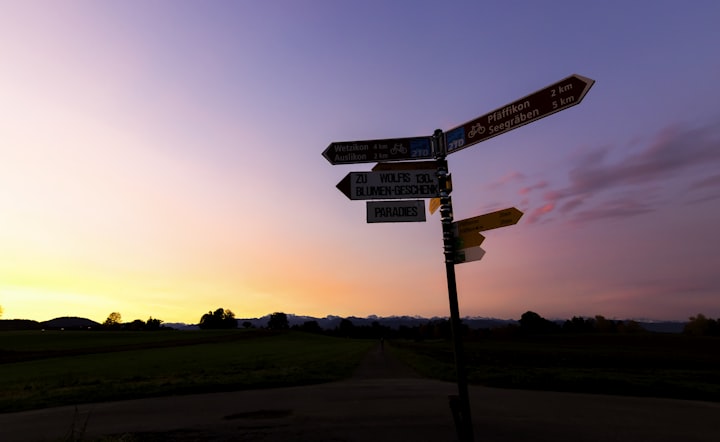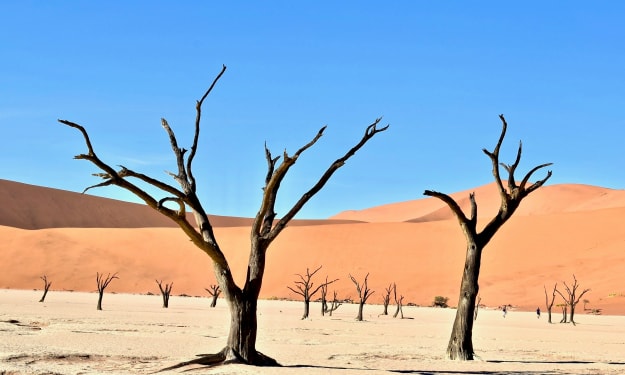Productivity for creatives
Why productivity systems often fail us, and what you need to do instead to be an inspired writer, artist, creator

My productivity obsession (and how it failed)
What does productivity look like, for creatives? In the late nineties, this became an urgent question for me.
After my son was born, I could no longer work where and when I wanted. My hours were constrained by the availability of childcare, and later by his school timetable. He needed regular routines around meals and bedtime, and I needed time with him far more than I'd imagined.
Yet money had also become a lot more important, as we moved out of a small flat into a house. (Children are expensive - who knew?)
It was clear that I needed to cram more work into less hours, so I became obsessed with productivity. I read all the books. Did the courses. I set up various systems, and tried my best to use them.
Some of it was helpful, but quite a bit of it wasn't. It turns out that very few of the popular approaches to productivity apply fully to creative work.
Indeed, from the outside, a lot of what we do doesn't look like work at all.
Productivity for creatives: why we're different
There are times when we are clearly doing our jobs. When we're drawing, designing, painting, making, performing, rehearsing, writing. But there also more ambiguous times when we are exploring, thinking, dreaming, considering. When we're making space for inspiration.
Is an artist working if she is in her studio, but simply sitting still and staring into space? Is a musician who has spent the past week listening to music made by others working, researching – or just procrastinating? Only they can really answer that.
Anyone who has been on a film or TV set or in a recording studio knows that there are bursts of intense, often repetitive activity followed by long periods of waiting while the next part is set up, or someone else does their job. Many actors and musicians have told me about new ideas and approaches that often come to them in these in-between times, if they're allowed to get bored, and left to dream and think.
Anyone who has shared a space with a writer notices that there are periods when they're pottering about and don't appear to be working, yet they're oddly vacant and glassy-eyed, unwilling or unable to conduct a normal conversation. For me, these moments away from the page when I'm still auditioning words and phrases in my mind are an important part of the process.
Most productivity systems are about eliminating 'dead' time
They're about getting more done by filling every moment with tasks. In a queue? Check email on your phone. Waiting for the kettle to boil? Get some squats and lunges in. On a train? Then do some work!
But creativity needs space to explore, and time to process what it finds. You can't do that if you're spending every waking minute processing email and ticking items off your to-do list.
The research now seems to indicate that there are two kinds of creative thinking, and we need both to thrive.
Divergent thinking is when we're gathering raw materials that we'll later form into ideas or directions. We're exploring, reading, observing, processing, day-dreaming, experimenting, following our curiosity. We're laying the ground for inspiration.
This is where ideas take seed and grow.
To encourage divergent thinking, we need to go wide. We need to listen to good music, watch films, dramas and documentaries, see art, theatre, performance; and ingest ideas from everywhere.
We need to read interviews with other creators, and expose ourselves to stimulating discussions with interesting people - especially people from outside our own fields of knowledge and/or experience.
Famously, Pixar designed their HQ so that staff from all departments were made to mingle every time that picked up mail, ate a meal or grabbed a coffee - or even went to the loo. Because it stimulates new thinking and collaboration.
We need to be observant, open and porous, and take it all in. And we need to make space, in our busy lives, for play, exploration and for coincidence and serendipity. Play dates and morning pages are good tools for this. Indulging our curiosity is essential.
Then we need time and space for it all to ferment.
Very little divergent thinking is immediately productive, which is why we often fail to see it as work. This is where many productivity systems fail, for creatives. You can't schedule inspiration, or put 'get new idea' on your to-do list then tick it off. Because it's rarely predictable.
That flash of insight that changes the direction of your project or moves an obstacle out of the way tends to come at random times, often when we've let go of consciously thinking about it and we are doing something else entirely.
That's why so many good ideas tend to come in the shower, on a run, in the middle of cooking dinner – not while you're actually working.
There are things you can do to encourage inspiration.
A long solo walk is my favourite way of letting ideas settle, take root and start to mingle. And solutions to tricky problems often come when I'm staring out of the window on a train, waiting in line at the supermarket or pottering round the house, oddly vacant and glassy-eyed. Exactly the kind of spaces, in fact, that many productivity gurus berate us for "wasting".
Without divergent thinking, our ideas dry up, our inspiration shrivels and dies. We lose access to our most creative selves and the work starts to feel difficult, meaningless. No amount of pushing, hard work or new productivity systems will help at this point.
You can't force inspiration. You can't rush it. But there is something really important we all need to do to open the door for it.
We need to show up, and do the work. Regularly.
Here's the thing. Divergent thinking doesn't just look like procrastination from the outside. It's also easy for it to become procrastination, if you get stuck there.
We all know people who are endlessly waiting for their muse to arrive, or have been trapped in the research/experiment phase for years, without actually producing any finished work.
An artist client once told me about the collective he joined straight out of art school, a group of artists who shared studio spaces and met regularly to drink, to discuss art, to argue about art, and to plot their imminent takeover of the art world. There was just one problem: none of them were actually making any art.
We need structure, and we need to take action.
Otherwise you'll disappear down the rabbit hole forever, and get nothing done. To make the work we want to make, we also need to create regular time regular time for convergent thinking.
This is when we narrow down, when an idea keeps tugging at us and turns into a project we want or need to complete. It's when general exploring becomes more focussed research.
It's when we start making, and we persist even when we hit the problems, blocks and barriers that inevitably come with any creative project. And we continue until we get it done, and out in the world. Even if it's not perfect, or not as good as the thing we imagined when we started on it.
Convergent thinking is concentrated, focussed.
It's when we write and edit something intended for publication. When we design and prototype something we're aiming to put out in the world. When we write a song then record it, perform it, share it. When we use our skills and make our ideas into something concrete: art, objects, products, services.
The mistake we often make is believing that an idea has to be clear and fully-formed, for us to begin working on it. But get into the habit of starting before you feel ready. Because so much gets solved in the doing, the making, the process.
If you create for a living, you need to do this daily.
I'm now a coach working with creative professionals, as well as a writer and author. So my days are full. But I still write every day, from 8am-9am. On Mondays, I take a break for breakfast and a quick walk, then go back to writing till lunchtime. On other days, I try to get in at least another hour of writing at some point. But if that's not possible, then I fit in short sprints between other things.
If you're not yet a full-time creator, you still need regular time for focussed, deep work. II have a client who wrote her first two novels from 10am-12 every Saturday, while her partner entertained their children. You can complete ambitious projects even in small, limited pockets of time so long as you're consistent, and learn to get into flow quickly.
These thinking modes are the yin and yang of creativity.
Productivity, for creatives, means balancing both. If you spend all your time making and creating without refilling the well with fresh inspiration, you'll soon burn out, feeling drained, grey, lacking energy and ideas. We need to clear time and space for divergent thinking, even when we're busy.
But unless you set aside regular time for convergent thinking – for narrowing down your scope and actually doing the work – those ideas will never be realised. They'll never be out there in the world, inspiring and entertaining others. And hopefully making you some money in the process!
***
Sheryl Garratt is a writer, and a coach helping experienced creatives of all kinds get the success they want, making work they truly love. If you're ready to grow your creative business, I have a FREE 10-day course giving you 10 steps to success - with less stress. Sign up for it here.
About the Creator
Sheryl Garratt
Sheryl Garratt is a former editor of The Face and Observer magazines, and has written professionally for more than 30 years. She is also a coach working with creatives of all kinds. Find her at thecreativelife.net
Enjoyed the story? Support the Creator.
Subscribe for free to receive all their stories in your feed. You could also pledge your support or give them a one-off tip, letting them know you appreciate their work.






Comments
There are no comments for this story
Be the first to respond and start the conversation.